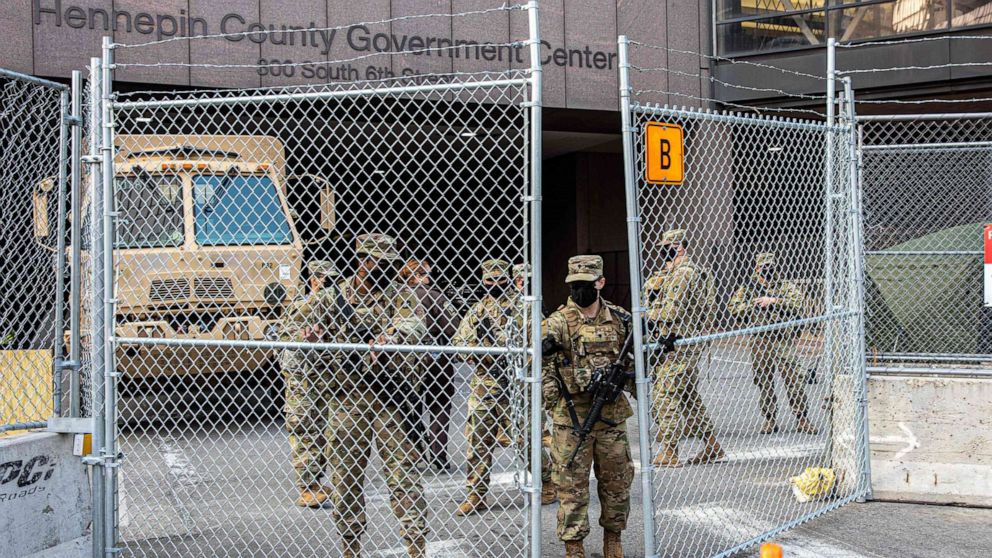2 more jurors picked for Derek Chauvin case, 1 says trial may force him to delay wedding
A fourth and fifth juror has been chosen to decide the fate of former Minneapolis police officer Derek Chauvin in the death of George Floyd, including one panelist who informed the court that fulfilling his civic duty might force him to postpone his planned wedding.
The jurors selected on Wednesday are a married man of color who works as an internet technology manager, and a data specialist for a nationwide sales management team who said he and his fiancée, a law school graduate, are planning to get married on May 1 in Florida. He said they have invited 30 family members to attend their nuptials, some of whom have already booked their flights.
"I know you can't speak for your fiancée but in the event that this trial did last past May 1, how significant of a hardship would that be for you?" Chauvin's attorney, Eric Nelson, asked the juror.
The juror -- who also described himself as a devoted father, a fan of the reality TV show "Cops" and a Minnesota Vikings season-ticket holder, responded, "It would be obviously disappointing."
"Personally, I would love to get married on May 1 to my fiancée and we have something beautiful planned, but there are other things that occur in life and really that's in your guys' hands," the juror said.
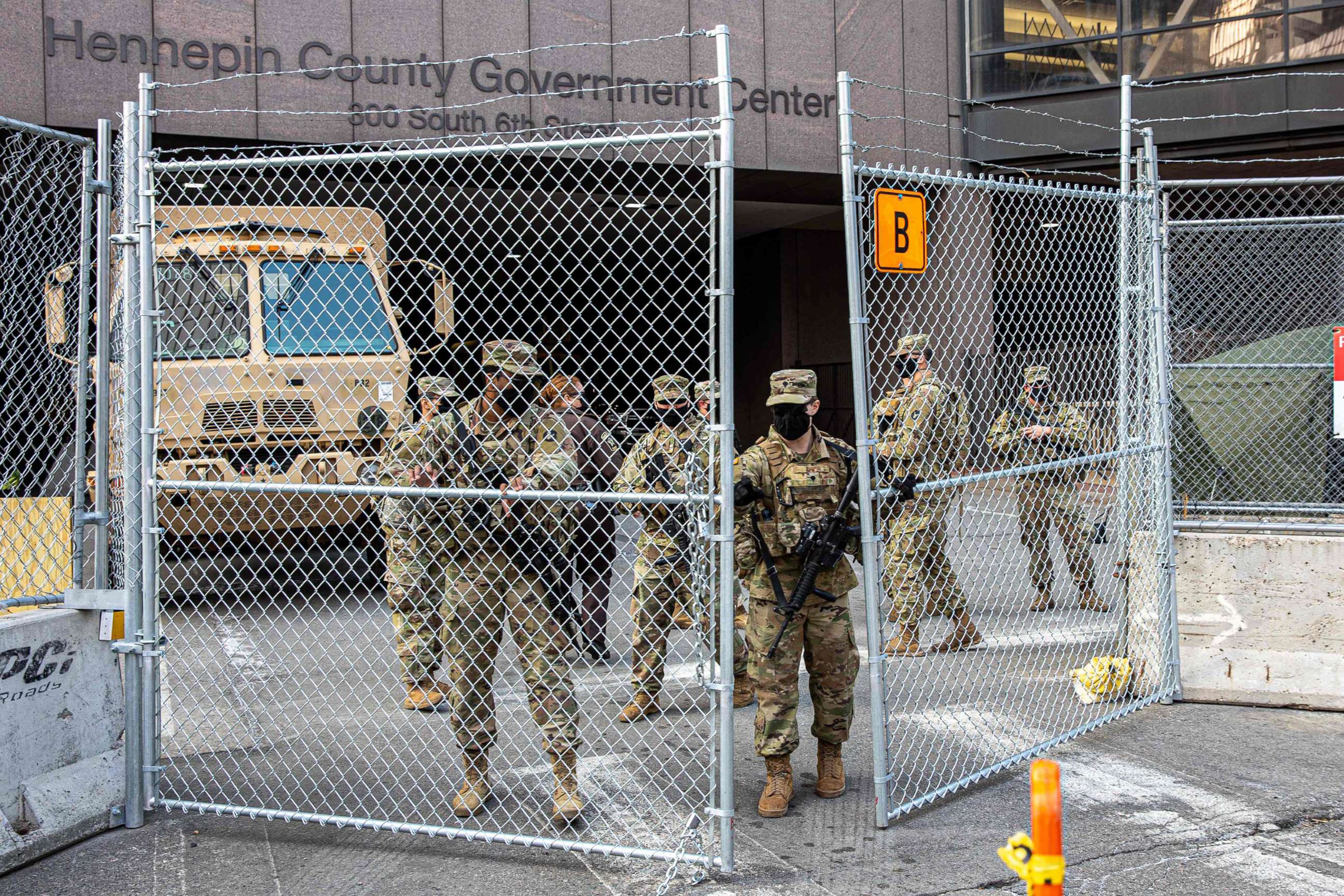
After conferring in private with the lawyers in the case, Hennepin County District Court Judge Peter Cahill informed the man that he had been picked to be on the jury.
Cahill has scheduled opening arguments to begin on March 29 and said the trial is expected to last for at least four weeks.
"We'll try to get you to your wedding on time. Go ahead and throw me under the bus with your fiancée," Cahill told the juror.
The juror responded, "I will do that."
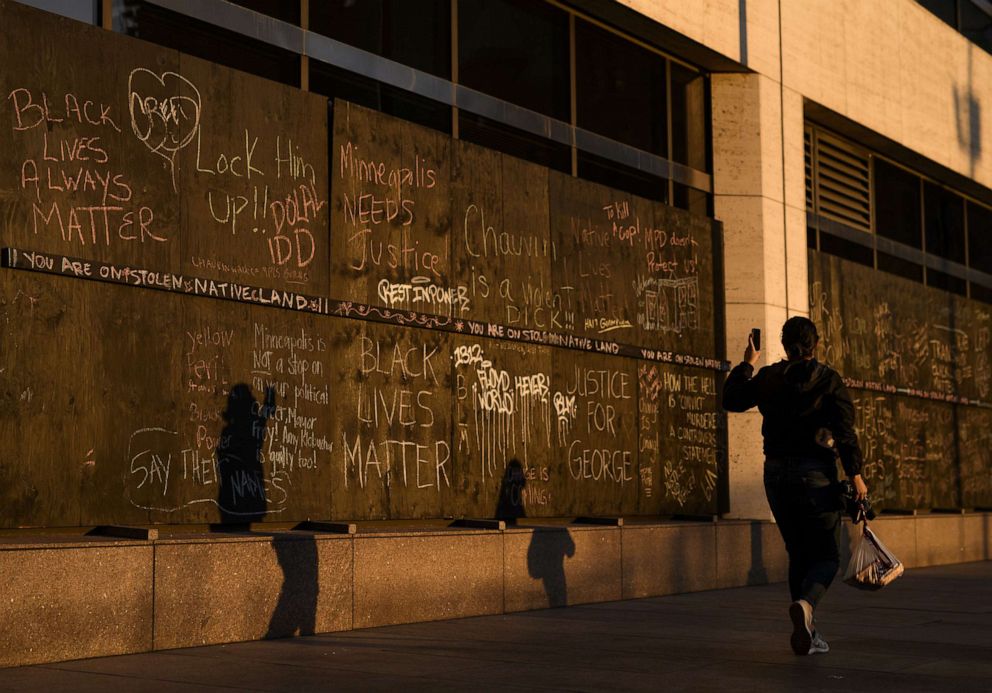
During the voir dire questioning, the juror said arriving at the Hennepin County Courthouse and seeing it ringed by National Guard troops, security fencing, barbed-wire and barricades "further solidified the magnitude" of the trial. Unlike other jurors who have been dismissed, he said the ramped-up security did not make him fear for his own safety.
On Tuesday, several jurors questioned cited the high-security as fueling trepidations about serving on the jury and made them feel more concerned for their safety.
"It just represents to me the seriousness of the case and that potentially there could be some ... protests or demonstrations and the Government Center, the county, was taking the necessary precautions," one dismissed juror, a manager for a company, said. Despite Cahill telling jurors their identities will be guarded, the man said he was also concerned about his name being made public and result in people vandalizing his home or harming his family.
A 19-year-old trade-school student, who was also dismissed, said seeing the security made him feel anxious and less willing to serve on the jury.
"I was sort of thinking it's going to snowball; it's going to get bigger and bigger as the days go by and I don't know if I want to deal with all that comes with that," he said in court. "The media attention, the people outside the courthouse, all the guards and stuff, it's just a lot for me to take in."
Joseph H. Low IV, a Los Angeles criminal defense and civil trial lawyer, told ABC News, that he expects the bolstered security to continue to have a chilling effect on selecting a jury.
“That can cause some fear and some uncertainty," Low said. "This is not making them feel any calmer. So that will be something that a specialist who picks and selects juries will be aware of."
But some of the potential jurors said they saw the security as reassuring.
"I thought, 'This place is secure,'" said a woman who was dismissed from jury service on Wednesday.
Both jurors selected on Wednesday said they have viewed the viral bystander video multiple times of the May 25 arrest in which Chauvin, who is white, is seen kneeling on the back of Floyd's neck for more than nine minutes as the handcuffed and prone Black man repeatedly cried out "I can't breathe."
Chauvin, 44, is charged with second-degree unintentional murder and second-degree manslaughter. He has pleaded not guilty to the charges.
The Minnesota State Court of Appeals issued a ruling on Friday finding that Cahill erred in dropping a third-degree murder charge against Chauvin and requiring him to consider reinstating it. But a decision by Cahill is pending further guidance from the appellate court.
A request from Chauvin for the state Supreme Court to review the appeals court decision on the third-degree murder charge was rejected on Wednesday. Cahill said he will address the issue on Thursday morning.
"The Supreme Court was right to decline Mr. Chauvin’s petition for review. The Court of Appeals ruled correctly; therefore, there was no need for the Supreme Court to intervene," Minnesota State Attorney General Keith Ellison, whose office is prosecuting Chauvin, said in a statement. "We believe the charge of 3rd-degree murder is fair and appropriate. We look forward to putting it before the jury, along with charges of 2nd-degree unintentional murder and 2nd-degree manslaughter."
Chauvin is being tried separately from three other former officers involved in Floyd's death. J. Alexander Kueng, Thomas Lane and Tou Thao are charged with aiding and abetting second-degree murder and manslaughter and are scheduled to go on trial in August. All three men have pleaded not guilty to the charges.
The first juror selected on Wednesday said he believes "the event did not need to end in death." He also said he has a "very favorable" view of the Black Lives Matter movement behind many of the nationwide protests calling for justice for Floyd, saying, "they do matter, and I don't know why anyone would be against that." He also said believes the U.S. criminal justice system is biased against minorities. "I do believe there is a systematic issue at hand and I wish our country and world would get better at that," he said.
Conversely, the juror said he believes the Blue Lives Matter movement in support of law enforcement is a "marketing rip-off" of Black Lives Matter, but added he does support law enforcement and has a cousin who is a former police officer.
The juror also informed the court that a friend of his, a forensic scientist for the Minnesota Bureau of Criminal Apprehension, is on a list of nearly 400 potential witnesses in the case.
The second juror chosen Wednesday, the first Black man chosen for the panel, said he emigrated to the United States 14 years ago to attend school in Nebraska and that he moved to Minnesota in 2012. He acknowledged writing that he had a "somewhat negative" view of Chauvin based primarily on the video of Floyd being taken into custody. But the man said he could set aside his personal beliefs and render a verdict based solely on the evidence presented in court.
Following Floyd's death, he said he discussed the incident with his wife and shared with her that he felt it could have been him. "It could have been anybody ... I used to live not far from that area, it could be anybody," he said.
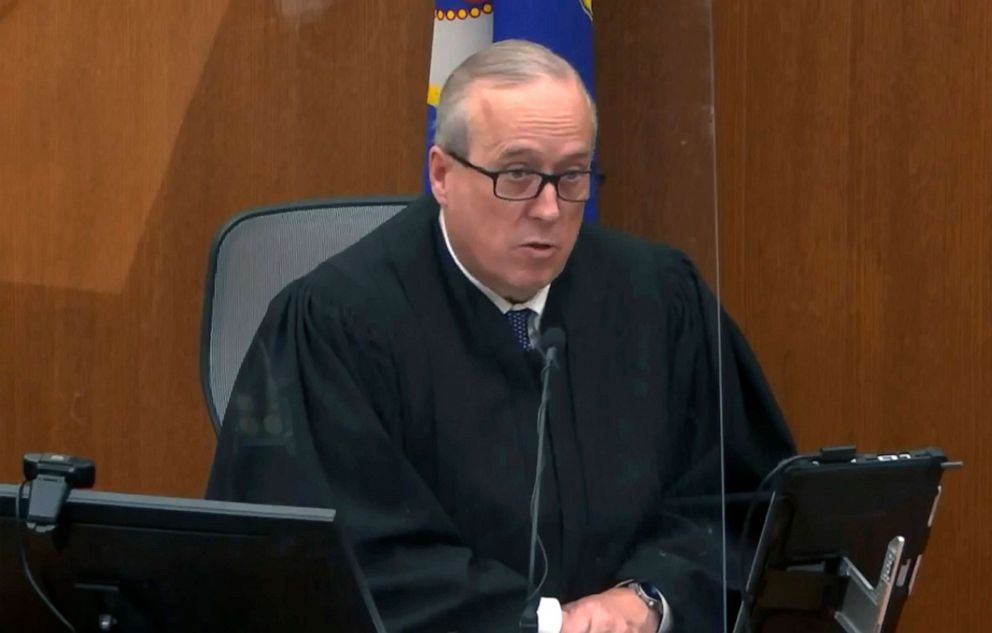
The jurors picked for the panel on Wednesday join three others chosen on Tuesday. They are a chemist for an environmental testing company who is engaged to be married to a physical therapist; a woman who said she was "super excited" to be a juror and is related to a northern Minnesota police officer; and a financial auditor who said he's formed a "somewhat negative" impression of Chauvin due primarily to the death of Floyd but that he could set his opinions aside to render a verdict based solely on the evidence presented in court.
The attorneys are looking to select 14 jurors for the case, including two alternates.
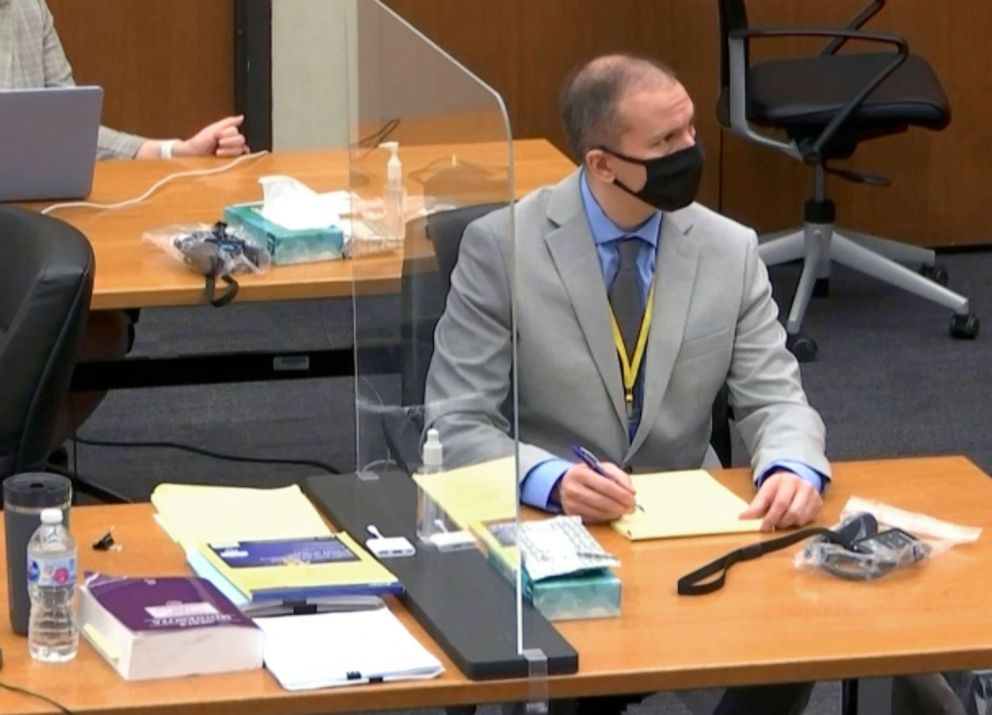
Before jury selection began, lawyers on both sides of the case dismissed 16 of the first 50 prospective jurors for cause, mostly due to the answers they submitted on a lengthy questionnaire. Another 13 jurors have been dismissed since jury selection began on Tuesday.
Two other jurors questioned Wednesday morning were cut loose, including a woman who has lived in Minneapolis for more than 40 years and said the protests and riots that followed Floyd's death were not useful and painted the city in a "poor light." Another dismissed juror, a married father of three daughters, said he had taken his wife and one of his daughters on a tour of the destructions that occurred in downtown Minneapolis in the wake of Floyd's death, posted photos of vandalized businesses on social media and contributed food to a volunteer clean-up effort of the damage that was organized by his church.
